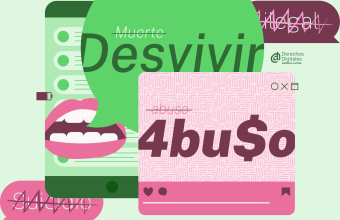From Tuesday, November 10th to Friday, November 13th, The Internet Governance Forum will hold its 10th annual meeting in João Pessoa, Brazil. On Wednesday November, 11th, Derechos Digitales has organized two roundtables: “Zero-rating and neutrality policies in developing countries” and “Political Dissent And Online Anonymity in Developing Countries.”
We’d be really glad if you could join our discussion!
Zero-rating and neutrality policies in developing countries
Wednesday, November 11th. 09:00 – 10:30. Workshop Room 4.
The goal of this roundtable is to go in depth into one of the emerging topics regarding internet governance: can there be exceptions to net neutrality with regards to access to the internet in countries from the Global South?
For some states and companies, their reach would allow more people, especially from developing countries, to become part of a global exchange of ideas. However, these services also raise several concerns: Do zero-rated services provide real access to the internet? Should exceptions to net neutrality be allowed? Which exceptions, then? Is it fair to provide access only for certain private platforms and not others? Are zero-rated services a threat to the free and open internet? Can zero-rated services be considered a public policy?
Confirmed panelists:
Andrés Sastre, Asociación Interamericana de Empresas de Telecomunicaciones
Nanjira Sambuli, Research Manager on iHub
Anja Kovacs, Director of Internet Democracy
Jorge Vargas, Regional Manager for Strategic Partnerships – Latam at Wikimedia
Bruno Magrani. Head of Public Policy, Facebook Brazil
Political Dissent And Online Anonymity in Developing Countries
Wednesday, November 11th. 14:00 – 15:30 PM. Workshop Room 7
Mass surveillance by states, data retention laws, personal data collection by companies, legal bans on anonymity and threats to encryption online, seem to put a name and a face to every online move: Anonymity is either impossible, or at least strongly compromised. In this environment of mass identification, is it possible to have truly right to protest and assembly?
From a multi-stakeholder approach, this roundtable will try to understand the actual state of online anonymity and how current legal and technical frameworks and the internet governance frames are facing the challenges of online dissent in developing countries.
Confirmed panelists:
David Kaye, UN Special Rapporteur on Freedom of Opinion & Expression
Pedro Less, Director Government Affairs & Public Policy Latin America at Google
Joana Varón, executive director at Coding Rights, Brazil
Zoya Rehman, Bytes For All, Pakistan
Leila Nachawati, Communications and Information Policy Program at APC
*Remote participation will be encouraged before and during the roundtables. First, in order to get questions for the moderator, we will encourage participation the days before our roundtable through social media outlets. The final five questions will be selected by the moderator and the remote moderator and will be asked at the roundtables. During the roundtables, a remote participation moderator will be present to facilitate comments and contributions from remote participants via IGF’s Remote Participation platform, as well as on Twitter.
 113a Conferencia Internacional del Trabajo
113a Conferencia Internacional del Trabajo Infraestructuras tecnológicas y medioambiente
Infraestructuras tecnológicas y medioambiente Lenguaje vigilado
Lenguaje vigilado